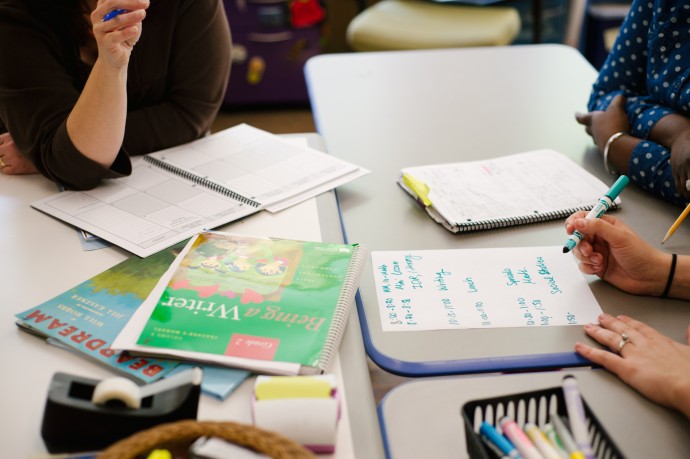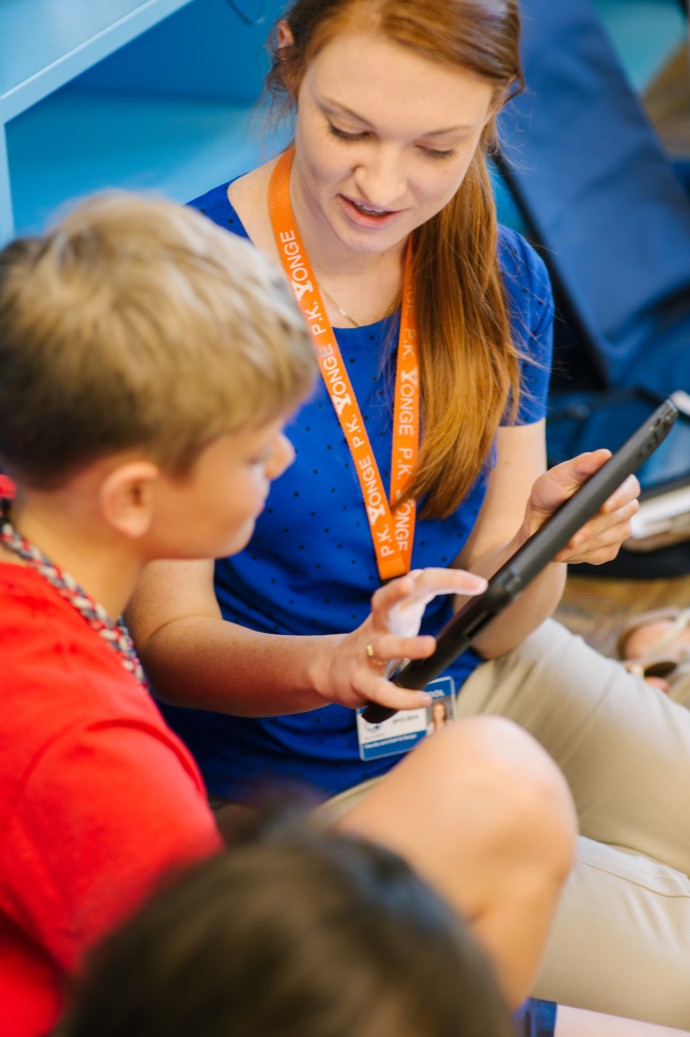We are delighted to feature a blog post by Mary Tavegia.
Over the years I have enjoyed reading research on how music affects the brain, particularly the positive impact that music has on language acquisition. I have always loved music, I have played several instruments and as a child I spent hours listening to my parents’ new high-fidelity music system. Ouch, there is that word-fidelity. Lately it seems that whenever that word comes up in conversations with teachers it brings the discussion to a screeching halt, like a phonograph needle sliding to a halt across a vinyl record.
What is it about that word fidelity that brings such an intense reaction? I asked that of a teacher one afternoon after a professional learning session. She was fun and outspoken as we began our session together and I was grateful for the laughter she brought out of everyone. Sarah was engaged in our work together, and she stated that she was delighted to have a program that offered so many opportunities for students to collaborate with one another. About midway through the morning, the Director of Curriculum came in and spoke to the group about his expectations for implementing this new program “with fidelity.” After that, the air in the room felt much heavier, and Sarah sat with her arms crossed, saying very little. The session ended with few questions and a rapid departure by everyone but Sarah.

I asked Sarah if I could help her with anything, as she clearly wanted to talk. I’ve been teaching here for 25 years,
she said, and she showed me the lovely locket she had received from the school district in recognition of her service. I know how to teach. I know what to teach. And I know my kids. I love the ideas you’ve presented here because I think there is nothing more powerful than students working together to create learning. The program you’ve shared sounds great, I want to try it. But why, after 25 years, do I have to be told that I better do things with fidelity or else? Why is my knowledge and experience given no value? I might as well be working on an assembly line somewhere-just do it, don’t think about it. Fidelity. Ha! Whoever thought that it would be that word that would set me off every time I hear it!
Oh, Sarah. We all need to take a moment and think about why fidelity is an important word and not an ugly one as we think about classrooms and instruction. NCLB hit the science-of-education drum pretty hard. Schools were required to adopt instructional programs that were research based, which means that the strategies and materials had been developed based on the work of those who approach reading instruction or math instruction or school climate development from the best research into theory and practices that get results. The hard work of gathering this information has all been done for teachers. Evidence-based programs have been tested on students and revised and reworked until the desired successful results could be achieved in classrooms where the approaches were followed. The music has been written for teachers, note by note, and teachers are being asked to play that music as it is written. That is the science of teaching. And that is what feels discordant to so many teachers.
But some teachers are forgetting their oh-so-important role in shaping how those notes get played in the classroom. Think about attending a concert to listen to a piece of music with which you are very familiar such as Beethoven’s Ninth Symphony, with the “Ode to Joy” at the end. The conductor gets that score in its entirety-every single note. All the musicians get their parts. Together they begin. The notes are followed in the order in which Beethoven knew they would sound best, the musicians are obliged to follow those notes. The conductor knows the music well, and the conductor knows her musicians well. She knows that some of the musicians need to be signaled at times to play louder or softer, she adjusts the tempo in some places because there are phrases of music that need emphasis. The conductor communicates with her musicians with intensity and passion; these relationships were built through numerous rehearsals and discussions about the music. Throughout the performance, her eyes signal them, her smiles encourage them, and together they make beautiful music. They don’t just play the notes. They play the music.

I had the chance to visit Sarah’s classroom recently. As instructed, Sarah was playing all the notes: following the program with fidelity, using the read-aloud, setting up partnerships, and underlining important ideas. The students were actively participating in discussions with one another, while energetic Sarah bounced around the room listening, interjecting, asking questions, and encouraging thinking-her 25 years of experience shining like her locket. The relationships Sarah has built with her students and the relationships they have with one another are strong and positive. During a whole-group discussion, there was Sarah brightly posing questions, knowing when to probe and when to wait for more ideas to spring forth from a student. Ode to joy! There is some high-fidelity music playing in that classroom.
